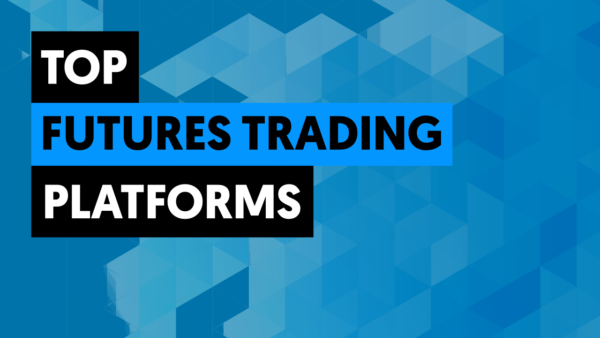Diving into the world of futures trading platforms, this introduction sets the stage for a detailed exploration of the key concepts and features that define these platforms. Readers will gain valuable insights into the importance of choosing the right platform for their trading needs.

In the subsequent paragraphs, we will delve into the popular platforms available, essential tools and resources they offer, and crucial factors to consider when selecting the optimal platform for futures trading.
Overview of Futures Trading Platforms
When it comes to futures trading, having access to a reliable trading platform is essential for traders to execute their trades efficiently. Futures trading platforms are online software that allows traders to buy and sell futures contracts on various financial instruments.
Key Features of Futures Trading Platforms
- Real-time Data: A good futures trading platform provides traders with live market data, including prices, charts, and other relevant information.
- Order Execution: The platform should offer fast and reliable order execution to ensure that traders can enter and exit positions quickly.
- Risk Management Tools: It's crucial for a futures trading platform to include risk management tools like stop-loss orders to help traders manage their risk effectively.
- Technical Analysis: Many platforms offer advanced charting tools and technical indicators to help traders analyze the market and make informed trading decisions.
- Customer Support: A reliable platform should have excellent customer support to assist traders with any issues or questions they may have while using the platform.
Importance of Using a Reliable Platform for Futures Trading
Using a reliable futures trading platform is crucial for traders to succeed in the futures market. A reliable platform ensures that traders have access to accurate and up-to-date market data, fast order execution, and robust risk management tools. By using a dependable platform, traders can execute their trading strategies effectively and minimize the risk of errors or technical issues that could potentially impact their trading performance.
Popular Futures Trading Platforms
When it comes to futures trading, there are several popular platforms that traders can choose from. Each platform offers unique features, fees, and user experiences. Let's take a closer look at some of the well-known futures trading platforms in the market.
1. Thinkorswim
Thinkorswim is a powerful futures trading platform offered by TD Ameritrade. It provides advanced charting tools, technical analysis, and a wide range of research resources for traders. Thinkorswim also offers a paper trading feature for beginners to practice without risking real money.
In terms of fees, Thinkorswim charges competitive commissions on futures trades.
2. NinjaTrader
NinjaTrader is another popular futures trading platform known for its advanced charting capabilities and algorithmic trading options. Traders can customize their trading strategies using NinjaTrader's extensive set of tools and indicators. NinjaTrader offers both a free version with limited features and a paid version with additional functionalities.
The platform also provides a simulation mode for users to test their strategies.
3. TradeStation
TradeStation is a well-established futures trading platform that caters to both beginner and advanced traders. It offers customizable charting tools, real-time market data, and a variety of order types to execute trades efficiently. TradeStation also provides a mobile app for traders to monitor their positions on the go.
While TradeStation may have slightly higher fees compared to other platforms, its robust features make it a popular choice among active traders.
4. Interactive Brokers
Interactive Brokers is a globally recognized futures trading platform that offers competitive pricing and a vast selection of tradable assets
. It provides access to multiple exchanges and allows traders to execute complex trading strategies. Interactive Brokers is known for its low commissions and margin rates, making it an attractive option for cost-conscious traders.
The platform also offers a user-friendly interface with customizable layouts for a personalized trading experience.Overall, the choice of a futures trading platform depends on individual preferences, trading strategies, and level of experience. Traders should consider factors such as features, fees, user interface, and customer support when selecting a platform that best suits their needs.
Essential Tools and Resources on Futures Trading Platforms
When it comes to futures trading platforms, having access to essential tools and resources is crucial for making well-informed trading decisions. These platforms offer a range of tools that can help traders with technical analysis, charting, and risk management.
Technical Analysis Tools
- One of the key tools available on futures trading platforms is technical analysis software, which allows traders to analyze historical price data and identify potential trends.
- These tools often include indicators such as moving averages, MACD, and RSI, which can help traders spot patterns and signals in the market.
- Technical analysis tools also provide features like drawing tools, Fibonacci retracements, and trend lines to help traders make informed decisions.
Charting Tools for Market Analysis
- Charting tools are essential for market analysis on futures trading platforms, as they allow traders to visualize price movements and patterns over time.
- Traders can use different types of charts, such as candlestick charts, bar charts, and line charts, to analyze price action and make predictions about future market movements.
- Charting tools often come with customization options, allowing traders to adjust settings like timeframes, indicators, and overlays to suit their trading strategies.
Risk Management Tools
- Risk management is a critical aspect of trading, and futures trading platforms offer various tools to help traders manage their risk exposure.
- Stop-loss orders are commonly used risk management tools that allow traders to set predefined exit points to limit potential losses.
- Some platforms also offer risk assessment tools that analyze a trader's portfolio and provide insights into potential risks and how to mitigate them.
- Additionally, risk management calculators can help traders determine the optimal position size based on their risk tolerance and account balance.
Choosing the Right Futures Trading Platform
When selecting a futures trading platform, it is crucial to consider various factors to ensure you choose the one that best suits your needs and preferences.
Factors to Consider
- Trading Tools and Features: Look for platforms that offer advanced trading tools, real-time data, technical analysis, and customizable interfaces to enhance your trading experience.
- Cost and Fees: Consider the commission rates, margin requirements, and other fees associated with using the platform to ensure it aligns with your budget and trading strategy.
- Security Measures: Compare the security protocols implemented by different platforms to safeguard your personal and financial information from cyber threats and hacking attempts.
- Market Access: Check if the platform provides access to a wide range of futures markets, asset classes, and trading instruments to diversify your portfolio and maximize trading opportunities.
Compare Security Measures
When evaluating the security measures of various futures trading platforms, prioritize platforms that offer:
- Two-factor authentication for account login.
- Encryption of sensitive data to protect it from unauthorized access.
- Regular security audits and updates to address potential vulnerabilities.
- Segregation of client funds to ensure they are kept separate from the platform's operational funds.
Availability of Customer Support and Educational Resources
Choose a futures trading platform that provides:
- Responsive customer support through multiple channels, such as live chat, email, and phone, to address any issues or queries promptly.
- Comprehensive educational resources, including tutorials, webinars, and trading guides, to help you improve your trading skills and knowledge.
- Demo accounts or simulated trading environments to practice trading strategies and familiarize yourself with the platform before committing real funds.
Final Review
In conclusion, this guide has shed light on the intricate world of futures trading platforms, emphasizing the significance of thorough research and careful consideration when navigating this dynamic market. Whether you are a novice or experienced trader, choosing the right platform can make all the difference in your trading journey.
FAQ
What are futures trading platforms?
Futures trading platforms are online software applications that allow users to trade futures contracts on various financial instruments.
How do I choose the right futures trading platform?
Consider factors like fees, features, user interface, security measures, and customer support when selecting a futures trading platform.
What tools are available on futures trading platforms for technical analysis?
Common tools include charting tools, market analysis tools, and risk management tools to help traders make informed decisions.
Can you provide insights on risk management tools offered by futures trading platforms?
Risk management tools on these platforms help traders mitigate potential losses through features like stop-loss orders and risk assessment tools.
 In the subsequent paragraphs, we will delve into the popular platforms available, essential tools and resources they offer, and crucial factors to consider when selecting the optimal platform for futures trading.
In the subsequent paragraphs, we will delve into the popular platforms available, essential tools and resources they offer, and crucial factors to consider when selecting the optimal platform for futures trading.










